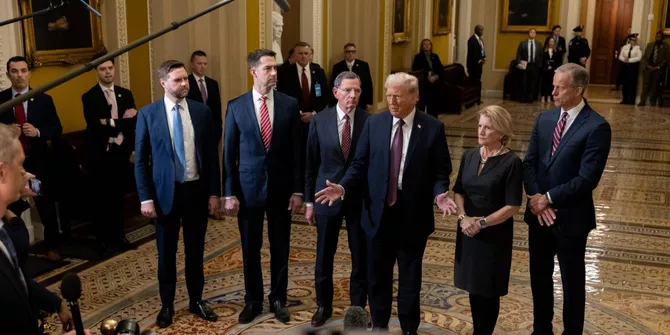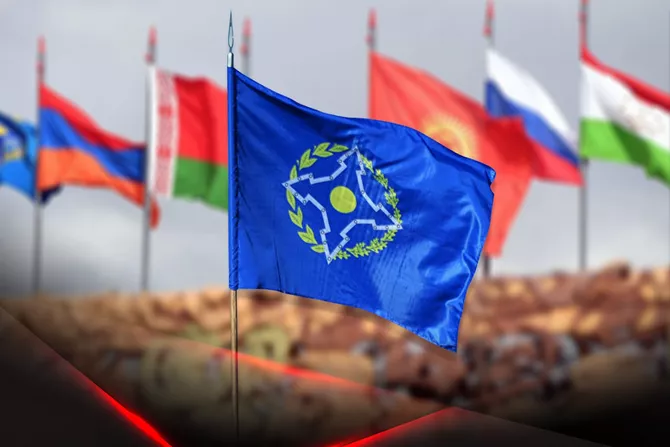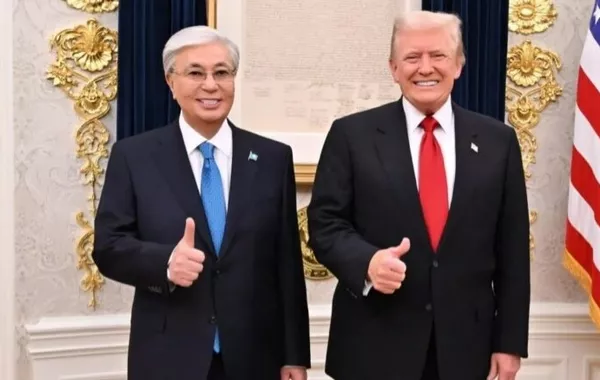
photo: NATO
Azerbaijani President Ilham Aliyev held a meeting in Baku on November 6 with a visiting NATO delegation consisting of permanent representatives and deputy permanent representatives of several member states - Türkiye, Greece, Hungary, the Netherlands, Norway, Slovakia, Slovenia, Sweden, the Czech Republic, Montenegro, North Macedonia, Portugal, Spain, as well as the United States and France.
The sides discussed the current state and future prospects of cooperation between Azerbaijan and the North Atlantic Alliance, emphasizing the importance of this interaction for strengthening regional stability and security.
President Aliyev noted that the Azerbaijani Armed Forces are gradually adapting to modern NATO military standards, actively developing strategic military partnership with Türkiye in this context. He also recalled that the country had fulfilled its historic mission of restoring territorial integrity and is now focused on deep modernization of its Armed Forces.

photo: Trend
Azerbaijan’s relations with NATO go back more than three decades. Their foundation was the signing of the framework document “Partnership for Peace” on May 4, 1994, an initiative through which Azerbaijan, under the leadership of Heydar Aliyev, became one of the first post-Soviet states to establish strong ties with the Alliance.
This step opened new opportunities for the republic to participate in Euro-Atlantic processes and peacekeeping missions, strengthening its international standing.
Although Baku has never declared an intention to join the Alliance, cooperation with NATO has become an integral part of the country’s foreign policy. In Brussels, Azerbaijan is regarded as a reliable and valuable partner that made a significant contribution to NATO's Resolute Support Mission in Afghanistan.
The mission operated from January 2015 to August 2021, bringing together the efforts of 39 countries. Azerbaijan took part from the very first days, initially deploying 94 servicemen and later increasing its contingent to 120. Azerbaijani peacekeepers served in the protection of Kabul International Airport and held responsible positions in staff structures.

photo: NATO Int
When the United States decided to end the operation, Azerbaijani and Turkish servicemen were the only foreign contingents remaining on the ground, helping ensure the evacuation of foreign citizens, employees of international organizations, and UN staff. During the tensest days, their efforts helped stabilize the situation at Kabul Airport, something leading foreign media acknowledged with gratitude. Upon returning home, the peacekeepers received state and military awards.
However, Baku’s support was not limited to personnel. Azerbaijan also provided key logistical capabilities, ensuring multimodal transit of cargo and personnel for NATO. The Baku-Tbilisi-Kars (BTK) railway, opened in 2017, played a particularly important role. This transport artery was used for shipments to and from Afghanistan and later became part of the Lapis Lazuli corridor, providing the Alliance with a safe and reliable route through the Caucasus.
It is noteworthy that the United States initially viewed the BTK skeptically, considering the bypass of Armenia undesirable. Yet this very route later became a critically important element of its military logistics.
Commenting on relations with the United States after the Afghan campaign, President Aliyev recalled how, following the withdrawal of the contingents, Washington reinstated the restrictive Section 907, which prohibits direct aid to Azerbaijan.
Speaking in a recent interview with Al Arabiya about the reasons for lifting Section 907 earlier, he said: “Why? Because they needed us in Afghanistan. They needed our airspace, they needed our sea, they needed the railroad. We provided very important support to American logistics and transportation. But as soon as Biden ran away from Afghanistan, they reimposed sanctions against us. How can someone be so ungrateful?!”

photo: Chatham House
Nonetheless, the current U.S. administration led by Donald Trump has taken steps to restore normal relations with Azerbaijan.
Today, cooperation between Azerbaijan and NATO covers a wide range of areas - from defense planning and personnel training to sharing expertise in civil security, counterterrorism, and cyberthreat mitigation. Energy security and the resilience of transport infrastructure remain key elements of the dialogue. Azerbaijan’s geostrategic position makes it an indispensable link in Europe’s energy security system and, consequently, the entire Euro-Atlantic space.
While maintaining neutrality and a policy of non-alignment, Azerbaijan continues to foster constructive relations with both NATO member states and countries within the Russian-led Collective Security Treaty Organization (CSTO). As a result, Baku has become a venue where representatives of different military-political blocs can meet.

photo: apa
Azerbaijan’s capital has repeatedly served as a neutral location for talks between NATO and Russian military leaders. In February 2017, Baku hosted the first meeting between the Chiefs of the General Staff of the U.S. and Russian Armed Forces - Joseph Dunford and Valery Gerasimov. That same year, Chairman of NATO’s Military Committee General Petr Pavel also visited. In subsequent years, Baku hosted General Gerasimov multiple times, as well as NATO’s Supreme Allied Commanders Europe - Curtis Scaparrotti and Tod Wolters.
These examples demonstrate that Azerbaijan is capable of acting as a mediator and platform for dialogue even during periods of heightened tensions between global powers. It is possible that in the future, Baku will again serve as a venue for peace negotiations, as a country that has experienced war and restored justice understands better than many the true value of peace.
By Tural Heybatov
Share on social media
